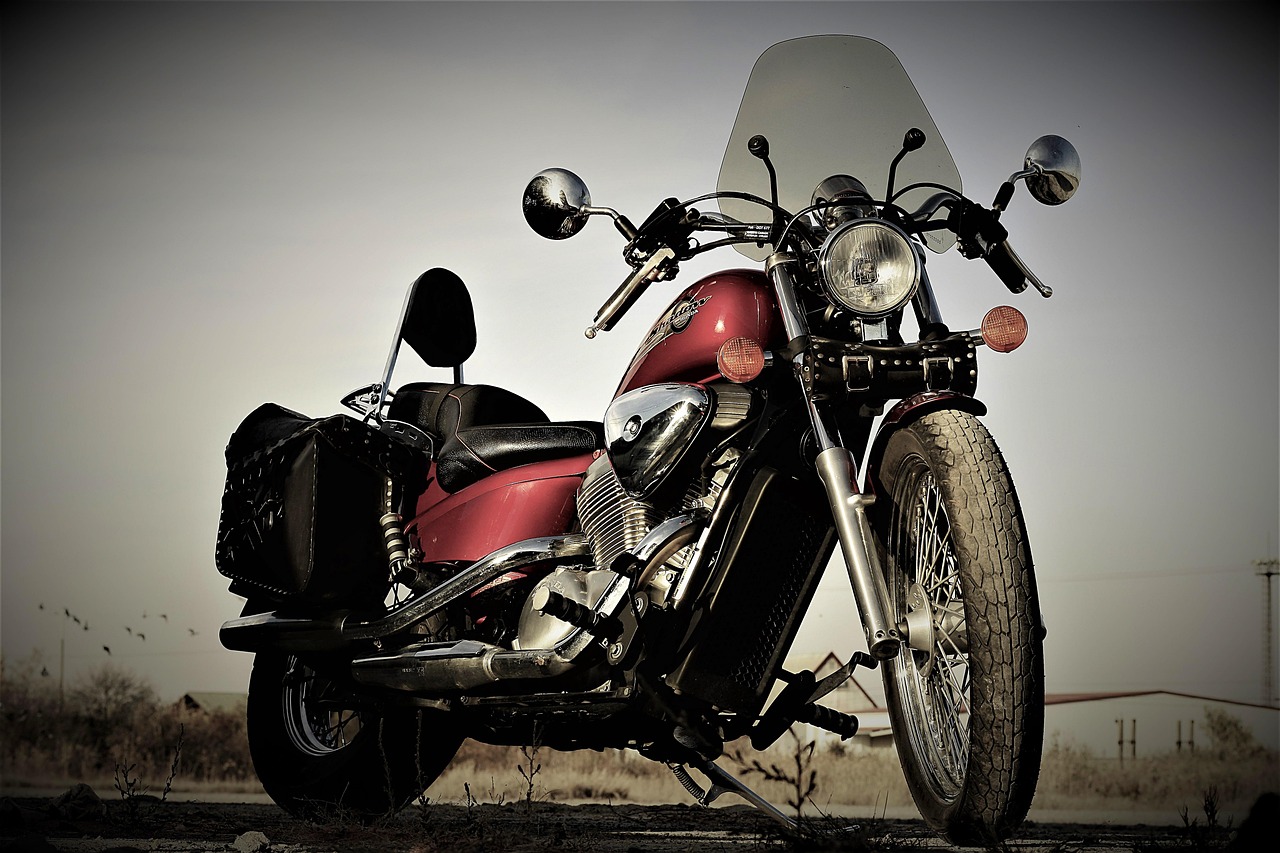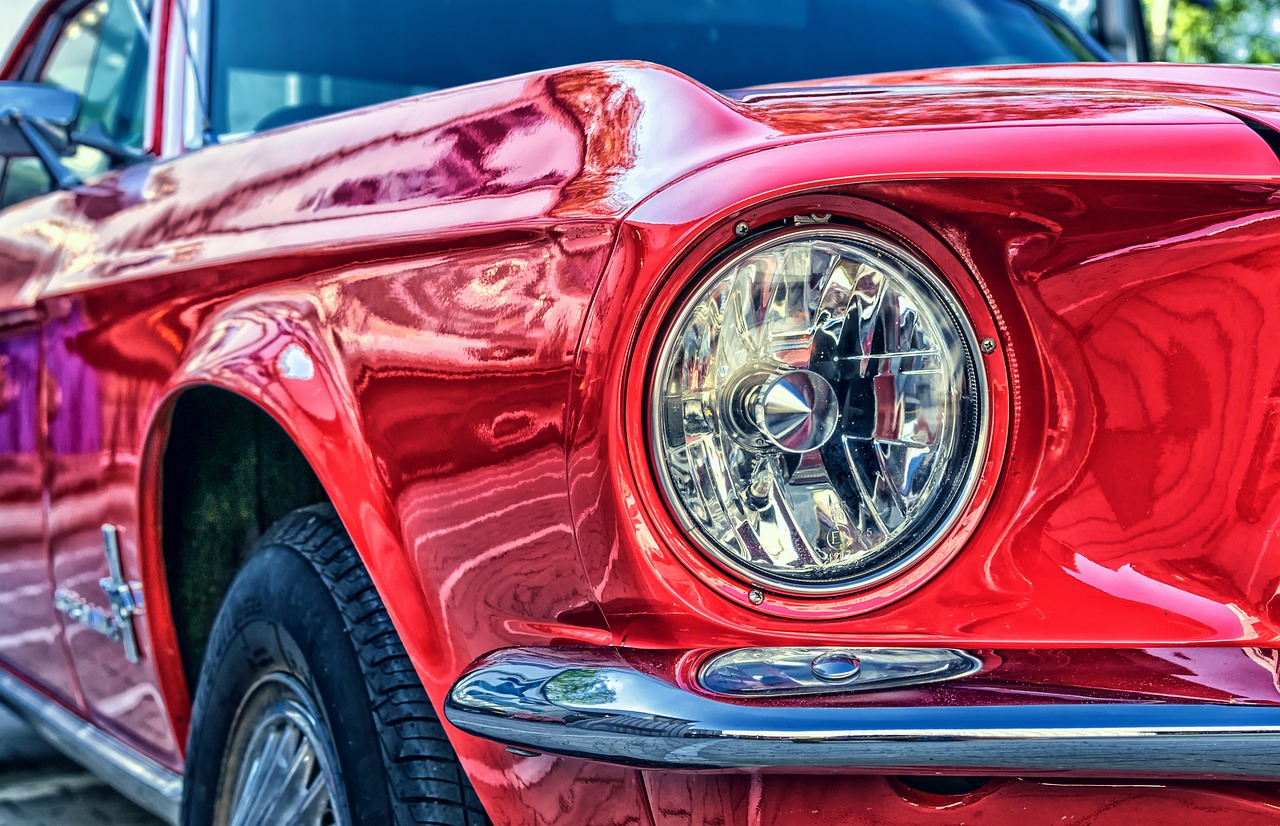The Honda Accord has long been a staple in the automotive world, renowned for its reliability and performance. In this article, we will delve into the various aspects that contribute to the Accord’s reputation, including its performance metrics, customer satisfaction, maintenance costs, and expert reviews. By examining these components, we aim to determine whether the Honda Accord truly stands the test of time.
The Honda Accord is celebrated for its blend of reliability, comfort, and performance. Key factors contributing to its popularity include:
- Durable Build Quality: The Accord is engineered with high-quality materials that enhance its longevity.
- Fuel Efficiency: Many models boast impressive fuel economy, making them economical for daily commutes.
- Advanced Safety Features: The Accord consistently receives high marks for safety, equipped with the latest technologies.
When placed alongside competitors like the Toyota Camry and Nissan Altima, the Honda Accord often excels in terms of reliability and customer satisfaction. Notably:
- The Accord frequently outperforms rivals in reliability ratings from trusted sources.
- It garners positive feedback for driving dynamics and overall comfort.
Expert evaluations from organizations such as J.D. Power and Consumer Reports are invaluable in assessing the Honda Accord’s reliability. These ratings are derived from:
- Owner Surveys: Feedback from real users provides insights into long-term satisfaction.
- Reliability Data: Statistical analysis helps highlight common issues and strengths.
Owner satisfaction is a telling indicator of a vehicle’s reliability. Many Honda Accord owners report:
- High Mileage: Numerous owners have experienced their Accords reaching over 200,000 miles with minimal problems.
- Dependable Performance: Owners often praise the vehicle’s consistent performance over the years.
Like any vehicle, the Honda Accord is not without its quirks. Common issues reported by owners include:
- Engine and Transmission Problems: Some models have faced challenges, particularly in certain years.
- Electrical System Concerns: Issues such as faulty sensors or battery problems can arise.
Understanding maintenance costs is crucial for assessing the overall reliability of the Honda Accord. Typical expenses include:
- Routine Maintenance: Regular services like oil changes and tire rotations are essential for longevity.
- Long-Term Ownership Costs: Repairs and parts replacement can accumulate, but the Accord is generally known for reasonable costs.
Long-term performance is a vital aspect of reliability. Many Accord owners report:
- Longevity: The Accord is known for maintaining performance and reliability well into its later years.
- Resale Value: The Accord tends to retain its value better than many competitors, reflecting its reliability.

What Makes the Honda Accord a Popular Choice?
The Honda Accord has established itself as a top contender in the midsize sedan market, admired for its exceptional blend of reliability, comfort, and performance. With a history that spans several decades, this vehicle has garnered a loyal following among consumers, making it a staple on roads across the globe.
Several factors contribute to the Honda Accord’s enduring popularity:
- Reliability: One of the most significant reasons consumers choose the Accord is its reputation for reliability. Many owners report that their vehicles have lasted well over 200,000 miles with minimal issues, which is a testament to Honda’s engineering quality.
- Comfort and Interior Quality: The interior of the Honda Accord is designed with driver and passenger comfort in mind. Spacious seating, high-quality materials, and a user-friendly infotainment system enhance the overall driving experience.
- Performance: Equipped with a range of efficient engines, the Accord offers a balance of power and fuel economy. Whether opting for the standard inline-four or the more powerful V6, drivers appreciate the responsive handling and smooth ride quality.
- Safety Features: The Accord consistently receives high marks in safety ratings. Its array of advanced safety technologies, including adaptive cruise control, lane-keeping assist, and automatic emergency braking, provides peace of mind for drivers and passengers alike.
- Resale Value: Honda vehicles, particularly the Accord, maintain strong resale values. This aspect is crucial for many buyers who consider the long-term financial implications of their purchase.
Furthermore, the Honda Accord’s continuous innovation keeps it relevant in an ever-evolving automotive market. With each new model year, Honda introduces enhancements in technology, efficiency, and design, ensuring that the Accord remains competitive against rivals.
Consumer feedback plays a vital role in understanding the Accord’s popularity. Many owners express satisfaction with their vehicles, citing low maintenance costs and high reliability as key factors. Surveys from organizations like Consumer Reports consistently rank the Accord highly in owner satisfaction.
Moreover, the Honda Accord’s versatility appeals to a broad audience. Whether for commuting, family trips, or leisure drives, the Accord accommodates various lifestyles, making it a practical choice for many drivers.
In summary, the Honda Accord’s blend of reliability, comfort, performance, and advanced safety features makes it a popular choice among consumers. Its enduring appeal, backed by positive owner experiences and expert reviews, solidifies its status as a leading midsize sedan.

How Does Honda Accord Compare to Competitors?
The Honda Accord has long been a favorite in the midsize sedan market, but how does it truly compare to its competitors? In this section, we will delve into the key aspects of reliability, performance, and customer satisfaction, examining how the Accord holds its ground against rivals like the Toyota Camry, Hyundai Sonata, and Nissan Altima.
When it comes to reliability, the Honda Accord consistently ranks high in various consumer reports and expert reviews. According to J.D. Power and Consumer Reports, the Accord often outperforms its competitors in long-term dependability. For instance:
- Toyota Camry: Known for its reliability, the Camry is often a close competitor but tends to have higher maintenance costs over time.
- Hyundai Sonata: While the Sonata offers a solid warranty, its reliability ratings have varied more than those of the Accord.
- Nissan Altima: The Altima has faced some reliability concerns in recent years, making the Accord a safer choice for long-term ownership.
Performance is another critical factor that influences consumer choice. The Honda Accord features a well-balanced engine lineup, offering both fuel efficiency and power. Compared to its rivals:
- Toyota Camry: The Camry provides a sportier drive, but some drivers find the Accord’s handling more responsive.
- Hyundai Sonata: The Sonata offers a turbocharged option, yet many reviews highlight the Accord’s smoother ride quality.
- Nissan Altima: The Altima’s performance can be inconsistent, especially in terms of acceleration and handling.
Customer satisfaction is a vital metric for assessing a vehicle’s overall appeal. The Honda Accord boasts a loyal customer base, with many owners praising its comfort and reliability. Here’s how it compares:
- Toyota Camry: While the Camry enjoys high satisfaction ratings, some owners report less engaging driving experiences.
- Hyundai Sonata: The Sonata’s modern design attracts many buyers, but user reviews often indicate that the Accord offers better long-term satisfaction.
- Nissan Altima: The Altima has received mixed reviews, with some owners citing reliability issues that lead to lower satisfaction ratings.
Understanding maintenance costs is essential for any prospective car buyer. The Honda Accord is generally considered to have reasonable maintenance costs compared to its competitors. Here’s a breakdown:
- Toyota Camry: Although reliable, the Camry can incur higher costs for routine services.
- Hyundai Sonata: The Sonata’s warranty may offset some costs, but regular maintenance can still add up.
- Nissan Altima: The Altima often requires more frequent repairs, which can lead to higher overall costs.
In summary, the Honda Accord stands out when compared to its main competitors. With its proven reliability, solid performance, and high customer satisfaction ratings, it remains a top choice in the midsize sedan market. Whether you prioritize dependability, driving experience, or cost-effectiveness, the Accord consistently meets and often exceeds expectations.
Reliability Ratings from Expert Sources
The reliability of a vehicle is a crucial factor for many potential buyers, and the Honda Accord consistently receives high marks from various expert sources. In this section, we delve into the reliability ratings provided by reputable organizations like J.D. Power and Consumer Reports, which offer invaluable insights for consumers considering the Honda Accord.
J.D. Power is renowned for its comprehensive surveys and studies that gather data from millions of vehicle owners. Their reliability ratings for the Honda Accord are based on factors such as the frequency of repairs, severity of issues, and overall owner satisfaction. In recent years, the Accord has often been ranked among the top vehicles in its class, indicating a strong track record of dependability.
Consumer Reports evaluates vehicles through extensive owner surveys, focusing on reliability, safety, and performance. The Honda Accord consistently scores well in their reliability assessments, with many owners reporting minimal issues over time. This data-driven approach helps potential buyers understand the long-term reliability of the Accord, making it a wise choice for those prioritizing durability.
Understanding the reliability ratings from expert sources is essential for prospective buyers. High ratings from J.D. Power and Consumer Reports not only reflect the vehicle’s performance but also provide peace of mind regarding potential maintenance costs and resale value. A reliable car like the Honda Accord can save owners money in the long run and enhance their driving experience.
Many consumers rely heavily on expert ratings when making purchasing decisions. The Honda Accord’s high reliability ratings from J.D. Power and Consumer Reports can significantly influence buyer confidence. When potential buyers see that a vehicle has consistently performed well in reliability rankings, it can sway their decision toward purchasing that model over competitors.
In the competitive midsize sedan market, the Honda Accord often finds itself compared to rivals like the Toyota Camry and Nissan Altima. While these vehicles also receive commendable reliability ratings, the Accord frequently outperforms them in consumer satisfaction surveys. This trend underscores the Accord’s reputation for durability and longevity, making it a top contender in its class.
Owner feedback plays a pivotal role in shaping the reliability ratings provided by expert sources. The Honda Accord benefits from a large base of satisfied owners who share their experiences, contributing to the vehicle’s positive reputation. This feedback loop not only helps potential buyers but also encourages manufacturers to maintain high standards in production and service.
Overall, the Honda Accord’s reliability ratings from expert sources like J.D. Power and Consumer Reports paint a picture of a dependable vehicle that stands the test of time. With strong performance metrics, positive owner feedback, and a solid reputation in the market, the Accord continues to be a top choice for those seeking a reliable sedan. Buyers can feel confident in their decision when choosing the Honda Accord, knowing that it comes highly recommended by industry experts.
Consumer Reports Insights
The Honda Accord has long been a staple in the automotive market, known for its reliability and performance. One of the most trusted sources for evaluating vehicle reliability is Consumer Reports. This organization conducts rigorous evaluations based on owner surveys, reliability data, and performance metrics, providing a detailed overview of how the Honda Accord has fared over the years.
According to Consumer Reports, the Honda Accord consistently ranks high in reliability ratings. The organization gathers data from thousands of vehicle owners, which helps paint a clear picture of the Accord’s long-term dependability. Owners frequently praise the Accord for its durability and low maintenance needs, making it a favored choice among families and commuters alike.
- Owner Surveys: Consumer Reports collects feedback directly from Honda Accord owners, allowing them to assess real-world performance and satisfaction.
- Reliability Data: The organization analyzes historical data on repairs and issues reported by owners, which helps identify common problems and trends.
- Performance Metrics: Detailed testing of various performance aspects, such as fuel efficiency, handling, and comfort, contributes to the overall reliability score.
Over the years, Consumer Reports has highlighted several key aspects of the Honda Accord’s reliability:
- Low Frequency of Repairs: Many Accord owners report minimal issues, with most repairs being minor and infrequent.
- High Customer Satisfaction: The Accord often receives high marks for owner satisfaction, indicating that drivers are happy with their purchase.
- Longevity: Many Honda Accord models are known to last well beyond 200,000 miles, showcasing their durability.
Consumer Reports has maintained a strong database of ratings for the Honda Accord, which have remained consistently favorable. For instance, recent models have received high scores in categories such as:
- Safety: The Accord is often equipped with advanced safety features that contribute to its high safety ratings.
- Fuel Efficiency: Owners appreciate the Accord’s fuel economy, making it an economical choice for daily driving.
- Comfort and Technology: The Accord is equipped with modern technology and comfortable interiors, enhancing the overall driving experience.
While the Honda Accord generally receives high marks, Consumer Reports does note some common concerns among owners. These include:
- Electrical Issues: Some models have reported electrical system problems, which can impact reliability.
- Transmission Complaints: Certain years have faced criticism for transmission performance, although these issues are not universal.
In summary, Consumer Reports provides a comprehensive evaluation of the Honda Accord’s reliability, supported by extensive owner feedback and performance data. The Accord’s reputation for reliability is well-earned, with many owners enjoying years of trouble-free driving. As always, prospective buyers should consider both the positive and negative feedback to make an informed decision.
J.D. Power Ratings
The Honda Accord has long been a staple in the automotive market, renowned for its reliability and performance. One of the key indicators of a vehicle’s dependability is its ratings from reputable sources like J.D. Power. This section delves into how J.D. Power’s ratings reflect the Honda Accord’s standing in real-world conditions, highlighting its long-term reliability and customer satisfaction.
J.D. Power is a trusted name in automotive research, providing insights based on extensive consumer feedback. Their reliability ratings are derived from surveys that gather information on vehicle performance, owner satisfaction, and issues reported by drivers. This data offers a comprehensive look at how vehicles, including the Honda Accord, perform over time.
The Honda Accord consistently receives high marks in J.D. Power’s reliability ratings. This is largely due to its robust engineering and quality manufacturing processes. Owners frequently report that their Accords perform well under various driving conditions, showcasing dependability that stands the test of time.
- High owner satisfaction ratings
- Minimal reported issues over time
- Strong performance in diverse climates
One of the standout features of the Honda Accord, as highlighted by J.D. Power, is its long-term dependability. Many owners have reported that their vehicles remain reliable even after several years of use. This longevity is a significant factor for buyers looking for a vehicle that will last.
| Model Year | Reliability Score | Common Issues Reported |
|---|---|---|
| 2018 | 85/100 | Minor electrical issues |
| 2019 | 88/100 | Few transmission concerns |
| 2020 | 90/100 | Very few reported issues |
Consumer feedback plays a crucial role in shaping J.D. Power’s ratings. Many Honda Accord owners express high levels of satisfaction with their vehicles. They often cite fuel efficiency, comfort, and performance as key factors contributing to their positive experiences.
- Fuel efficiency praised by many users
- Comfortable interiors enhance driving experience
- Performance meets expectations across various terrains
In summary, the Honda Accord stands out in J.D. Power’s reliability ratings, reflecting its strong performance in real-world conditions and long-term dependability. With high owner satisfaction and minimal issues reported, it remains a popular choice for those seeking a reliable vehicle. The insights provided by J.D. Power not only help consumers make informed decisions but also reinforce the Honda Accord’s reputation as a trustworthy car.
Owner Satisfaction and Reviews
Owner satisfaction is a fundamental indicator of a vehicle’s reliability, and the Honda Accord stands out in this regard. This section explores the genuine experiences of Honda Accord owners, shedding light on their perspectives regarding performance, durability, and overall dependability.
Many owners of the Honda Accord report a high level of satisfaction, often citing the vehicle’s dependable performance and comfort as key factors in their positive experiences. According to numerous online forums and review platforms, drivers appreciate the Accord’s smooth ride and responsive handling, making it a favorite for both daily commutes and long-distance travel.
One common theme among owners is the Accord’s longevity. Many have shared stories of their vehicles exceeding 200,000 miles with minimal issues. This impressive durability is often attributed to Honda’s commitment to quality engineering and rigorous testing. One owner noted, “I’ve had my Accord for over 10 years, and it still runs like new. Regular maintenance has kept it in top shape!” Such testimonials reinforce the notion that the Accord is built to last.
| Owner Experience | Key Aspects |
|---|---|
| High Mileage | Many owners report exceeding 200,000 miles. |
| Comfort | Spacious interior and smooth ride quality. |
| Performance | Responsive handling and reliable engine performance. |
In addition to performance, owners often highlight the cost-effectiveness of maintaining a Honda Accord. With relatively low maintenance costs compared to competitors, many find that their investment in the Accord pays off over time. “I spend far less on repairs than I did with my previous car,” remarked another owner, emphasizing the Accord’s reliability in terms of both performance and cost.
- Positive User Feedback: Many owners express their satisfaction through positive reviews on various automotive websites.
- Community Support: The Honda Accord has a robust community of enthusiasts, offering support and advice for maintenance and upgrades.
- Resale Value: Owners often mention the strong resale value of their vehicles, a testament to the Accord’s reliability and desirability in the used car market.
However, it is essential to acknowledge that no vehicle is without its faults. Some owners have reported minor issues, such as electrical glitches or interior wear over time. Yet, these concerns are often outweighed by the overall satisfaction and reliability reported by the majority of Honda Accord owners.
In conclusion, the experiences shared by Honda Accord owners paint a picture of a vehicle that excels in reliability and owner satisfaction. The blend of performance, comfort, and cost-effectiveness contributes to the Accord’s reputation as a dependable choice in the automotive market. For potential buyers, these real-life accounts serve as valuable insights into what they can expect from this iconic vehicle.

What Are the Common Issues with Honda Accord?
Every vehicle has its quirks, and the Honda Accord is no exception. While it is widely regarded for its reliability and performance, some owners have reported specific issues that can affect overall satisfaction. In this section, we will explore the most commonly reported issues among Honda Accord owners and how these may impact the vehicle’s reliability.
- Engine and Transmission Problems
Some Honda Accord models, particularly those from certain production years, have faced engine and transmission issues. Owners have reported problems such as:
- Unusual noises coming from the engine
- Transmission slipping or failure to shift smoothly
- Oil leaks that can lead to engine damage
These issues can lead to costly repairs and affect the vehicle’s longevity. Prospective buyers should research specific model years to determine if these problems are prevalent.
- Electrical System Concerns
Electrical issues can arise in any vehicle, and the Honda Accord is no different. Common electrical problems reported by owners include:
- Malfunctioning dashboard lights
- Power window failures
- Battery drain issues
These electrical system concerns can be frustrating and may require professional diagnostics to resolve. Regular maintenance checks can help identify potential electrical faults before they escalate.
- Suspension and Steering Issues
Some owners have noted suspension and steering problems that can affect the driving experience. Common complaints include:
- Unusual vibrations while driving
- Difficulty steering or a loose steering wheel
- Worn-out suspension components leading to a rough ride
These issues can compromise safety and comfort, making it essential for owners to stay vigilant about their vehicle’s handling.
- Brake System Complications
Brake-related issues are critical to vehicle safety. Some Honda Accord owners have reported:
- Brake pedal pulsation
- Unusual noises when braking
- Premature wear of brake pads and rotors
Addressing these concerns promptly is vital to ensure safe operation, as neglecting brake issues can lead to more severe problems down the line.
Understanding these common issues can help current and prospective Honda Accord owners make informed decisions about maintenance and repairs. By staying proactive and addressing problems early, owners can enhance their vehicle’s reliability and longevity.
Engine and Transmission Problems
The Honda Accord has long been celebrated for its reliability and performance. However, like many vehicles, it is not without its issues. One area of concern for prospective buyers is the that have been reported in certain Honda Accord models. Understanding these issues is crucial for anyone considering purchasing this popular sedan.
Some Honda Accord models, particularly those manufactured in specific years, have faced notable engine problems. These can range from minor issues such as excessive oil consumption to more serious concerns like engine failure. Reports indicate that certain engines may have a tendency to consume oil at a higher rate than expected, leading to potential long-term damage if not addressed promptly.
Transmission issues are another area where some Honda Accord models have faced scrutiny. Owners have reported problems such as slipping gears, rough shifting, and even complete transmission failure. These issues can lead to costly repairs and significantly affect the vehicle’s reliability. It is essential for potential buyers to be aware of which model years have been more prone to these issues.
The model years that have been most frequently associated with engine and transmission problems include:
- 2003-2004: Known for excessive oil consumption and transmission slipping.
- 2008-2010: Reports of transmission failure and engine stalling.
- 2013-2015: Engine vibration and transmission hesitation have been noted.
Understanding the specific model years that are prone to these issues can help buyers make informed decisions and avoid potential pitfalls.
To mitigate the risks associated with engine and transmission problems in the Honda Accord, prospective buyers should consider the following:
- Research: Look into the specific model year you are considering and check for any recalls or common issues reported by owners.
- Pre-Purchase Inspection: Have a trusted mechanic conduct a thorough inspection before purchasing a used Honda Accord.
- Maintenance Records: Request the vehicle’s maintenance history to ensure that previous owners addressed any known issues.
Being aware of the signs of potential problems can save buyers from future headaches. Common indicators include:
- Warning Lights: Keep an eye on the check engine light or transmission warning lights.
- Unusual Noises: Listen for any strange sounds coming from the engine or transmission.
- Performance Issues: Pay attention to any rough shifting or loss of power during acceleration.
In conclusion, while the Honda Accord is generally regarded as a reliable vehicle, certain models have experienced engine and transmission issues that potential buyers should be aware of. By conducting thorough research, being vigilant about signs of trouble, and seeking professional inspections, buyers can better navigate the risks associated with specific model years and enjoy the many benefits this iconic sedan has to offer.
Electrical System Concerns
Electrical issues can be a significant concern for any vehicle owner, and the Honda Accord is no exception. While the Accord is widely recognized for its reliability and performance, certain electrical problems have been reported by owners over the years. Understanding these issues is crucial for potential buyers and current owners alike, as they can impact the overall reliability and driving experience of the vehicle.
Electrical problems in the Honda Accord can manifest in various ways, often leading to frustrating experiences for drivers. Here are some of the most common issues:
- Battery Drain: Many Honda Accord owners have reported unexpected battery drain, which can be attributed to faulty wiring or malfunctioning electrical components. This issue can leave drivers stranded if not addressed promptly.
- Malfunctioning Power Windows: Issues with power windows not responding or getting stuck are frequently noted. This can be caused by a faulty switch or wiring problems within the door assembly.
- Dashboard Warning Lights: The appearance of warning lights on the dashboard, such as the check engine light, can indicate underlying electrical issues. These lights often require diagnostic testing to determine the root cause.
- Headlight and Taillight Failures: Some owners have experienced premature bulb failures or issues with the electrical connections to the headlights and taillights, which can compromise safety.
- Audio System Problems: A malfunctioning audio system, including issues with speakers or connectivity, can detract from the driving experience and is often reported by Accord owners.
The presence of electrical issues can significantly affect the reliability of the Honda Accord. When electrical components fail, it can lead to a domino effect of problems that may require costly repairs. For instance, if the battery drain issue is not resolved, it could lead to a dead battery, leaving the driver unable to start the vehicle. Similarly, malfunctioning power windows may compromise the vehicle’s security, as windows that won’t close can make the car vulnerable to theft.
Moreover, electrical problems can also impact the overall driving experience. For example, dashboard warning lights can create anxiety for drivers, leading them to question the vehicle’s safety and reliability. Addressing these issues promptly is essential to maintaining the Accord’s reputation for reliability.
Honda Accord owners can take several proactive steps to mitigate electrical issues:
- Regular Maintenance: Routine inspections of the electrical system during regular maintenance can help identify potential problems before they escalate. This includes checking the battery, wiring, and fuses.
- Use Quality Parts: When replacing electrical components, it’s advisable to use OEM (Original Equipment Manufacturer) parts to ensure compatibility and reliability.
- Monitor Symptoms: Owners should be vigilant about any signs of electrical issues, such as strange noises, flickering lights, or unusual behavior from electrical components, and seek professional help if needed.
By staying informed and proactive, Honda Accord owners can minimize the impact of electrical issues and maintain their vehicle’s reliability. Understanding these common electrical problems and their implications is essential for anyone considering the purchase of a Honda Accord or seeking to maintain their current vehicle.

What Are the Maintenance Costs for Honda Accord?
The Honda Accord is renowned for its reliability and durability, but like any vehicle, it requires regular maintenance to ensure optimal performance. Understanding the maintenance costs associated with owning a Honda Accord is crucial for potential buyers and current owners alike. This section will delve into various aspects of maintenance expenses, providing a comprehensive overview of what to expect.
When it comes to maintaining a Honda Accord, several factors influence the overall costs. Here, we break down the typical expenses associated with routine maintenance, repairs, and long-term ownership.
Routine maintenance is essential for keeping your Honda Accord running smoothly. Here are some common services and their estimated costs:
- Oil Changes: Regular oil changes are vital for engine health. Expect to pay between $30 and $70 every 5,000 to 7,500 miles.
- Tire Rotations: To ensure even tire wear, tire rotations should be performed every 5,000 to 7,500 miles, costing around $20 to $50.
- Brake Inspections: Brake pads may need replacement approximately every 30,000 to 70,000 miles, with costs ranging from $150 to $300 for parts and labor.
- Fluid Flushes: Transmission fluid, coolant, and brake fluid flushes are necessary every 30,000 to 60,000 miles, costing between $100 and $200 each.
Beyond routine maintenance, long-term ownership costs should also be considered. These include:
- Repairs: While the Honda Accord is generally reliable, repairs can arise. Average repair costs can range from $500 to $1,500 annually, depending on the vehicle’s age and mileage.
- Parts Replacement: Over time, parts such as batteries, tires, and belts will need replacement. Budget around $300 to $800 yearly for these expenses.
- Insurance: Insurance costs vary by location and driver history, but on average, Honda Accord owners pay between $1,000 and $1,500 annually.
Several factors can influence the maintenance costs of a Honda Accord:
- Model Year: Newer models may come with warranties that cover certain repairs, while older models may require more frequent maintenance.
- Mileage: Higher mileage vehicles may experience more wear and tear, leading to increased maintenance expenses.
- Driving Habits: Aggressive driving or frequent short trips can lead to higher maintenance costs due to increased stress on the engine and brakes.
To keep maintenance costs manageable, consider the following tips:
- Regular Maintenance: Stick to the manufacturer’s recommended maintenance schedule to prevent costly repairs down the line.
- Use Quality Parts: Invest in high-quality parts and fluids to enhance longevity and performance.
- DIY Where Possible: Some basic maintenance tasks, like oil changes and air filter replacements, can be done at home to save on labor costs.
In conclusion, understanding the maintenance costs associated with owning a Honda Accord is essential for budgeting and ensuring the vehicle’s longevity. By staying informed and proactive about maintenance, owners can enjoy the reliability and performance that the Honda Accord is known for.
Routine Maintenance Expenses
Routine maintenance is a critical aspect of vehicle ownership, particularly for the Honda Accord. Regular upkeep not only ensures that the vehicle operates smoothly but also enhances its reliability and longevity. Understanding the costs associated with routine maintenance can help owners budget effectively and avoid unexpected expenses down the road.
Routine services for the Honda Accord generally include oil changes, tire rotations, and brake inspections. Below is a breakdown of the average costs associated with these essential services:
| Service Type | Average Cost |
|---|---|
| Oil Change | $30 – $70 |
| Tire Rotation | $20 – $50 |
| Brake Inspection | $50 – $100 |
These costs can vary based on factors such as location, service provider, and whether you choose to use synthetic oil or OEM parts. It’s important to consult your owner’s manual for specific recommendations regarding service intervals and types of fluids.
Maintaining a regular service schedule helps prevent minor issues from escalating into major problems. For instance, neglecting oil changes can lead to engine wear and tear, while skipping tire rotations may result in uneven tire wear, affecting handling and safety.
- Engine Health: Regular oil changes keep the engine lubricated and running smoothly.
- Safety: Brake inspections ensure that the braking system is functioning properly, which is crucial for safe driving.
- Fuel Efficiency: Proper maintenance can improve fuel efficiency, saving you money in the long run.
In addition to routine services, Honda Accord owners should also budget for other maintenance costs that may arise over time. These can include:
- Tire Replacement: Depending on driving habits and conditions, tires may need to be replaced every 40,000 to 60,000 miles.
- Brake Pad Replacement: Brake pads typically need replacing every 30,000 to 70,000 miles, depending on usage.
- Battery Replacement: Most car batteries last between 3 to 5 years, and replacement costs can range from $100 to $200.
It’s also wise to set aside a budget for unexpected repairs. While the Honda Accord is known for its reliability, unforeseen issues can still arise. Having a financial cushion can alleviate stress when these situations occur.
To minimize maintenance expenses, consider the following tips:
- DIY Maintenance: Learn basic maintenance tasks like oil changes and tire rotations to save on labor costs.
- Shop Around: Compare prices at different service centers to find the best deals.
- Join Loyalty Programs: Many auto shops offer loyalty discounts or packages that can reduce overall costs.
In conclusion, understanding the routine maintenance expenses associated with the Honda Accord is essential for ensuring the vehicle’s reliability and performance. By budgeting for these costs and prioritizing regular upkeep, owners can enjoy a dependable driving experience for years to come.
Long-Term Ownership Costs
When considering the Honda Accord as a long-term investment, it is crucial to evaluate the . These costs encompass not only the initial purchase price but also the ongoing expenses related to maintenance, repairs, and parts replacement over the vehicle’s lifespan. By understanding these factors, potential buyers can gain a clearer picture of the Accord’s overall reliability and value.
Long-term ownership costs refer to the cumulative expenses incurred throughout the life of the vehicle. This includes:
- Routine Maintenance: Regular services such as oil changes, tire rotations, and brake inspections.
- Repairs: Unexpected issues that may arise, including engine or transmission problems.
- Parts Replacement: Costs associated with replacing worn-out components like tires, batteries, and belts.
Understanding these costs is vital for several reasons:
- Budgeting: Knowing what to expect helps in planning finances effectively.
- Value Assessment: A vehicle with lower long-term costs may provide better overall value.
- Reliability Insight: Regular expenses can indicate the vehicle’s dependability over time.
Compared to other vehicles in its class, the Honda Accord typically exhibits competitive long-term ownership costs. According to data from Consumer Reports and J.D. Power, the Accord is often praised for its durability and low maintenance expenses. Owners frequently report fewer unexpected repairs, contributing to a more predictable financial outlook.
While the Honda Accord is generally reliable, like any vehicle, it may encounter specific issues over time. Common repairs include:
- Brake System Repairs: Brake pads and rotors may need replacement every few years.
- Suspension Components: Parts such as struts and shocks can wear out, impacting ride quality.
- Electrical System Repairs: Issues with the battery or alternator can arise, affecting vehicle performance.
The average annual maintenance cost for a Honda Accord is typically around $400 to $600. This figure can fluctuate based on factors like:
- Mileage: Higher mileage often leads to increased maintenance needs.
- Driving Conditions: Frequent driving in harsh conditions can accelerate wear and tear.
- Model Year: Newer models may have different maintenance requirements compared to older ones.
The Honda Accord’s reputation for reliability significantly influences its long-term ownership costs. A reliable vehicle tends to require fewer repairs and less frequent maintenance, translating to lower expenses over time. Additionally, vehicles known for their reliability often maintain better resale values, which can offset initial ownership costs when it’s time to sell or trade in.
In summary, understanding the long-term ownership costs associated with the Honda Accord is essential for making an informed decision. By evaluating maintenance expenses, common repairs, and the vehicle’s overall reliability, prospective buyers can appreciate the true value of investing in a Honda Accord.

How Does the Honda Accord Perform Over Time?
When considering a vehicle’s reliability, it’s essential to examine its long-term performance. The Honda Accord, a staple in the midsize sedan market, has garnered a reputation for not only its initial quality but also its durability as it ages. This section delves into how the Honda Accord holds up over time, drawing from both owner feedback and expert analysis.
Longevity of the Honda Accord
Many Honda Accord owners report achieving impressive mileage without encountering significant issues. According to various surveys, it is not uncommon for Accords to surpass 200,000 miles with proper maintenance. Factors contributing to this remarkable longevity include:
- Robust Engineering: The Accord’s engineering emphasizes reliability, with many components designed for durability.
- Quality Materials: Honda uses high-quality materials that withstand wear and tear over time.
- Regular Maintenance: Owners who adhere to recommended maintenance schedules often report fewer problems.
Resale Value Insights
The resale value of a vehicle is often a telling indicator of its overall reliability. The Honda Accord consistently ranks high in resale value among midsize sedans. This trend can be attributed to several factors:
- Brand Reputation: Honda’s longstanding reputation for reliability boosts demand in the used car market.
- Owner Satisfaction: High levels of owner satisfaction translate into better resale prospects.
- Low Maintenance Costs: The affordability of maintenance and repairs enhances the vehicle’s appeal to potential buyers.
Expert reviews from sources like Consumer Reports and J.D. Power further support these observations, often highlighting the Accord’s ability to retain value over time. These insights are invaluable for prospective buyers looking to make an informed decision.
Owner Experiences and Feedback
Real-life experiences from Honda Accord owners provide a wealth of information regarding long-term performance. Many owners express satisfaction with their vehicles’ reliability, often sharing stories of minimal repairs needed over the years. Common themes in owner feedback include:
- Dependable Performance: Owners frequently report that their Accords continue to perform well even after many years on the road.
- Comfort and Features: Many long-term owners appreciate the comfort and features that remain relevant, even as the vehicle ages.
- Low Repair Frequency: Several owners note that major repairs are rare, contributing to a positive ownership experience.
However, some owners have reported minor issues, such as wear and tear on interior components and occasional electrical system glitches. Understanding these potential concerns can help prospective buyers assess the risks associated with specific model years.
Conclusion
In summary, the Honda Accord demonstrates impressive long-term performance, supported by positive owner feedback and expert analysis. Its ability to maintain reliability and value over time makes it a compelling choice for those seeking a dependable midsize sedan. By considering both owner experiences and expert insights, potential buyers can make informed decisions about their investment in the Honda Accord.
Longevity of the Honda Accord
The Honda Accord has earned a reputation for its impressive longevity, with many owners reporting high mileage without encountering significant issues. This remarkable durability is a key factor that contributes to the vehicle’s enduring popularity in the automotive market. In this section, we will explore the reasons behind the Honda Accord’s longevity, examining various elements that contribute to its impressive lifespan.
Several factors play a crucial role in the Honda Accord’s ability to stand the test of time:
- Quality Engineering: Honda is renowned for its commitment to quality engineering. The Accord is built with high-quality materials and components, which enhances its overall durability.
- Regular Maintenance: Owners who adhere to recommended maintenance schedules often report better longevity. Routine oil changes, brake inspections, and tire rotations are vital to keeping the Accord running smoothly.
- Robust Engine Performance: The Honda Accord is equipped with reliable engines that are designed for efficiency and longevity. With proper care, these engines can easily surpass 200,000 miles.
- Resilient Transmission: The transmission systems in Honda Accords are engineered for durability, contributing to their ability to withstand the rigors of daily driving.
Many Honda Accord owners share their experiences of driving vehicles that have reached impressive mileage milestones. For instance, some owners report their Accords reaching over 300,000 miles with only minor repairs. This level of reliability is often attributed to:
- Consistent Performance: Owners frequently mention that the Accord maintains its performance and comfort even after years of use.
- Dependable Features: The advanced safety and technology features in the Accord continue to function well over time, enhancing the overall driving experience.
While the Honda Accord is known for its durability, certain factors can impact its longevity:
- Driving Conditions: Vehicles driven primarily in harsh conditions may experience wear and tear more quickly than those used in moderate climates.
- Owner Habits: Driving habits, such as aggressive acceleration or frequent short trips, can affect the longevity of any vehicle, including the Accord.
Experts in the automotive industry often highlight the Honda Accord’s reliability and longevity in their reviews. Sources such as Consumer Reports and J.D. Power consistently rank the Accord highly for its long-term dependability. These rankings are based on extensive data collected from real-world users, providing potential buyers with valuable insights into what they can expect from their investment.
In summary, the Honda Accord stands out not only for its stylish design and comfort but also for its exceptional longevity. With a combination of quality engineering, diligent maintenance, and positive owner experiences, the Accord continues to be a reliable choice for those seeking a vehicle that can endure the test of time. Its reputation for high mileage without significant issues is a testament to Honda’s commitment to building durable and dependable automobiles.
Resale Value Insights
The resale value of a vehicle is a significant indicator of its long-term reliability and desirability in the market. When it comes to the Honda Accord, its resale value trends reveal much about how owners perceive its performance and durability over time. In this section, we will explore the factors affecting the Honda Accord’s resale value, the implications of these trends, and what they say about the vehicle’s overall reliability.
The resale value of a vehicle is crucial for several reasons:
- Financial Investment: A higher resale value means that the car retains its worth better, making it a smart financial choice for buyers.
- Market Demand: Vehicles with strong resale values often indicate high demand, suggesting that many consumers are satisfied with their purchase.
- Reliability Indicator: A vehicle that holds its value well is typically seen as reliable, as buyers are willing to invest in it.
The Honda Accord has consistently shown strong resale value compared to its competitors. According to Kelley Blue Book, the Accord frequently ranks among the top sedans for resale value. Factors contributing to this trend include:
- Brand Reputation: Honda is known for producing reliable and long-lasting vehicles, which enhances the Accord’s appeal in the used car market.
- Consumer Trust: Many owners report positive experiences, leading to word-of-mouth recommendations that boost resale value.
- Low Maintenance Costs: The Accord’s reputation for lower-than-average maintenance expenses makes it attractive to used car buyers.
The trends in the Honda Accord’s resale value provide insights into its long-term reliability:
- Consistent Demand: The Accord’s ability to maintain a strong resale value indicates that it remains a sought-after model, reflecting consumer confidence in its reliability.
- Durability: Owners often report high mileage without significant issues, which contributes to the vehicle’s perceived long-term reliability.
- Market Stability: The Accord’s stable resale value suggests that it is less susceptible to drastic depreciation, which is often a sign of reliability.
When compared to competitors such as the Toyota Camry and Nissan Altima, the Honda Accord often outperforms in terms of resale value. This is largely due to:
- Higher Customer Satisfaction: Surveys consistently show that Accord owners are more likely to recommend their vehicle to others.
- Better Performance Ratings: The Accord often scores higher in expert reviews, which enhances its marketability.
- Robust Safety Features: Advanced safety technology in newer models adds to the Accord’s appeal, further boosting its resale value.
In summary, the resale value of the Honda Accord is a strong reflection of its reliability and overall performance. The consistent demand, coupled with the vehicle’s durability and low maintenance costs, positions it as a wise investment for potential buyers. As trends continue to show positive resale values, it is clear that the Honda Accord remains a top choice for those seeking a reliable and long-lasting vehicle.
Frequently Asked Questions
- Is the Honda Accord a reliable car?
Absolutely! The Honda Accord has a long-standing reputation for reliability, often receiving high marks from experts and satisfied owners alike. Many drivers report minimal issues even after years of use, making it a solid choice for those seeking dependability.
- What are common issues with the Honda Accord?
While the Accord is generally reliable, some owners have reported occasional engine and transmission problems, as well as electrical system concerns. It’s wise to research specific model years to avoid potential headaches.
- How much does it cost to maintain a Honda Accord?
Maintenance costs for the Honda Accord are typically reasonable. Routine services like oil changes and brake inspections can be budget-friendly, helping you keep your vehicle in top shape without breaking the bank.
- How does the Honda Accord perform over time?
Many Accord owners rave about the vehicle’s longevity, often reaching high mileage with few issues. Its strong resale value also reflects its reputation for durability, making it a smart investment for the long haul.



